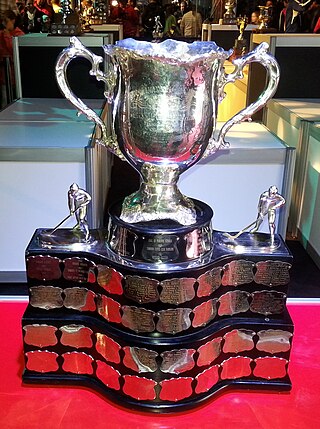
The Memorial Cup is the national championship of the Canadian Hockey League (CHL), a consortium of three major junior ice hockey leagues operating in Canada and parts of the United States. It is a four-team round-robin tournament played among the champions of the Ontario Hockey League (OHL), Quebec Maritimes Junior Hockey League (QMJHL) and Western Hockey League (WHL), and a host team, which alternates on an annual basis between the three member leagues. The Memorial Cup trophy was established by Captain James T. Sutherland to honour those who died in service during World War I. It was rededicated during the 2010 tournament to honour all soldiers who died fighting for Canada in any conflict.
The Barrie Flyers were a junior ice hockey team in the Ontario Hockey Association from 1945 to 1960, from Barrie, Ontario. The Flyers played home games at the Barrie Arena from 1945 to 1960.

The St. Catharines Black Hawks were a Canadian junior ice hockey team in the Ontario Hockey Association from 1962 to 1976. The team was based in St. Catharines, Ontario, Canada.

The Ontario Hockey Association (OHA) is the governing body for the majority of junior and senior level ice hockey teams in the province of Ontario. Founded in 1890, the OHA is sanctioned by the Ontario Hockey Federation along with the Northern Ontario Hockey Association. Other Ontario sanctioning bodies along with the OHF include the Hockey Eastern Ontario and Hockey Northwestern Ontario. The OHA controls three tiers of junior hockey; the "Tier 2 Junior "A", Junior "B", Junior "C", and one senior hockey league, Allan Cup Hockey.

Earl Phillip Dawson was a Canadian ice hockey administrator, politician and civil servant. He rose to prominence in Canadian hockey when he served as president of the Manitoba Amateur Hockey Association from 1958 to 1963. He established a council to reverse the decline of hockey in rural Manitoba and saw the association continually increase its registrations by spending more per player to develop minor ice hockey than other provinces in Canada. Dawson became chairman of the Canadian Amateur Hockey Association (CAHA) rules committee and organized the first nationwide clinic for referee instructors to standardize the interpretation of hockey rules. Dawson became vice-president of the CAHA in 1966 then served as its president from 1969 to 1971. The International Ice Hockey Federation had approved a limited use of professionals at the 1970 Ice Hockey World Championships, but later reversed the decision when the International Olympic Committee objected. Dawson and the CAHA perceived the situation to be a double standard since the Europeans were believed to be state-sponsored professionals labelled as amateurs, and withdrew the Canada men's national ice hockey team from international competitions until it was allowed to use its best players.

The J. Ross Robertson Cup is a Canadian ice hockey trophy. It is awarded annually in junior ice hockey to the champion of the Ontario Hockey League playoffs. It was donated by John Ross Robertson to the Ontario Hockey Association in 1910, and is the third of three similarly named trophies he established. His other eponymous trophies for the OHA include, the J. Ross Robertson Cup awarded to the annual champions of Allan Cup Hockey, and the J. Ross Robertson Cup which was awarded to the annual champions of the discontinued intermediate division.
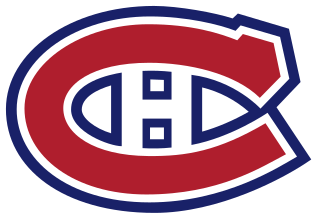
The Montreal Junior Canadiens were a junior ice hockey team in the Quebec Junior Hockey League from 1933 to 1961, and the Ontario Hockey Association from 1961 to 1972. They played out of the Montreal Forum in Montreal, Quebec, Canada.
In 1970, the Junior A level was divided into two more levels, Tier I and Tier II. In 1974, the "Major Junior A" division of the OHA became the Ontario Major Junior Hockey League (OMJHL) and began to operate independently of the OHA. Finally in 1980, the OMJHL became the Ontario Hockey League.

The Ed Chynoweth Cup is an ice hockey club championship trophy awarded to the playoff champion of the Western Hockey League (WHL). Originally called the President's Cup when the league was founded in 1966, the trophy was renamed in 2007 to honour Ed Chynoweth's long service to junior ice hockey in Canada. The WHL champion earns a berth into the Memorial Cup tournament, Canada's major junior hockey championship. The Kamloops Blazers have won the most WHL championships with six, followed by the Medicine Hat Tigers with five. The Spokane Chiefs were the first team to win the renamed trophy in the 2007–08 WHL season. The current (2023–24) holders of the Ed Chynoweth Cup are the Moose Jaw Warriors.
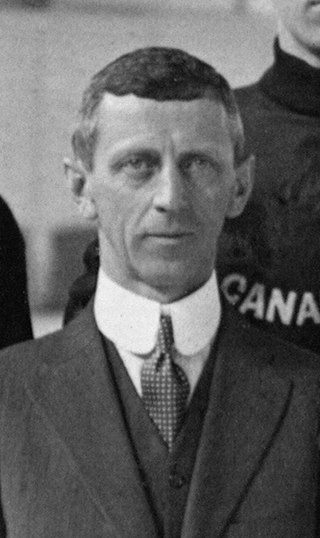
William Abraham Hewitt was a Canadian sports executive and journalist, also widely known as Billy Hewitt. He was secretary of the Ontario Hockey Association (OHA) from 1903 to 1966, and sports editor of the Toronto Daily Star from 1900 to 1931. He promoted the establishment of the Canadian Amateur Hockey Association (CAHA), then served as its secretary-treasurer from 1915 to 1919, registrar from 1921 to 1925, registrar-treasurer from 1925 to 1961, and a trustee of the Allan Cup and Memorial Cup. Hewitt standardized player registrations in Canada, was a committee member to discuss professional-amateur agreements with the National Hockey League, and negotiated working agreements with amateur hockey governing bodies in the United States. He oversaw referees within the OHA, and negotiated common rules of play for amateur and professional leagues as chairman of the CAHA rules committee. After retiring from journalism, he was the managing-director of Maple Leaf Gardens from 1931 to 1948, and chairman of the committee to select the inaugural members of the Hockey Hall of Fame in 1945.
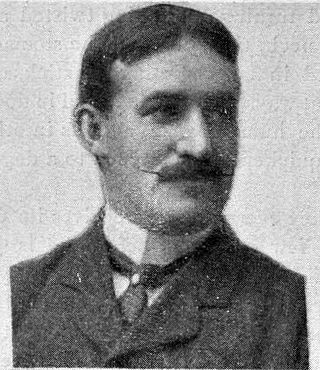
James Thomas Sutherland was a Canadian ice hockey administrator, and founding father of the game in Canada. Sutherland was a pioneer of hockey's early years, helping to develop amateur hockey, and spread the game's popularity throughout the country, and into the United States. He played in the inaugural season of the Ontario Hockey Association, and later coached and refereed the game. He founded the original Kingston Frontenacs, and later became president of the Ontario Hockey Association, and then the Canadian Amateur Hockey Association. He was instrumental in founding the Memorial Cup in 1919, and was at the forefront of the discussion on the origins of hockey.

The 1974 Memorial Cup occurred May 5–12 at the Stampede Corral in Calgary, Alberta. It was the 56th annual Memorial Cup competition, organized by the Canadian Amateur Hockey Association (CAHA) to determine the champion of major junior A ice hockey. Participating teams were the winners of the Ontario Hockey Association, Quebec Major Junior Hockey League and Western Hockey League which were the St. Catharines Black Hawks, Quebec Remparts and Regina Pats. Regina won their 4th Memorial Cup, defeating Quebec in the final game.

The 1973 Memorial Cup occurred May 7–12 at the Montreal Forum in Montreal, Quebec. It was the 55th annual Memorial Cup competition, organized by the Canadian Amateur Hockey Association (CAHA) to determine the champion of major junior A ice hockey. Participating teams were the winners of the Ontario Hockey Association, Quebec Major Junior Hockey League and Western Hockey League which were the Toronto Marlboros, Quebec Remparts and Medicine Hat Tigers. Toronto won their 6th Memorial Cup, defeating Quebec in the final game.

The 1971 Memorial Cup was the 53rd annual Memorial Cup competition, organized by the Canadian Amateur Hockey Association (CAHA) to determine the champion of major junior A ice hockey. It was a best-of-three series between the Quebec Remparts of the Quebec Major Junior Hockey League (QMJHL) and the Edmonton Oil Kings of the Western Canada Hockey League (WCHL). Quebec won the series in two games, both held at the Colisée de Québec, to win the first Memorial Cup championship in the city's history.

The 1948 Memorial Cup final was the 30th junior ice hockey championship of the Canadian Amateur Hockey Association (CAHA). The George Richardson Memorial Trophy champions Barrie Flyers of the Ontario Hockey Association in Eastern Canada competed against the Abbott Cup champions Port Arthur West End Bruins of the Thunder Bay Junior Hockey League in Western Canada. In a best-of-seven series, held at Maple Leaf Gardens in Toronto, Ontario, Port Arthur won their 1st Memorial Cup, defeating Barrie 4 games to 0.
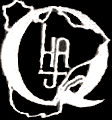
The 1969–70 QMJHL season was the first season in the history of the Quebec Major Junior Hockey League. Eleven teams formed the new league, ten from Quebec and one from Ontario. Eight teams came from the Quebec Junior Hockey League, the Drummondville Rangers, Quebec Remparts, Saint-Jérôme Alouettes, Shawinigan Bruins, Sherbrooke Castors, Sorel Éperviers, Trois-Rivières Ducs and Verdun Maple Leafs; two from the Metropolitan Montreal Junior Hockey League, the Rosemont National and Laval Saints; and the Cornwall Royals from the Central Junior A Hockey League. The teams played 56 games each in the schedule.
The 1970–71 QMJHL season was the second season in the history of the Quebec Major Junior Hockey League. Ten teams played 62 games each in the schedule. The league dissolves East and West Divisions. The Frank J. Selke Memorial Trophy is first awarded to the most sportsmanlike player, after being the trophy for the West Division champions for the previous season.

Paul Dumont was a Canadian ice hockey administrator. He was associated with the Quebec Major Junior Hockey League (QMJHL) from its founding in 1969 to 1984. He served as the general manager of the Quebec Remparts, then as the league's executive director and president. He established the first league office, and oversaw the development of its policies and procedures. He previously co-founded the Quebec International Pee-Wee Hockey Tournament and managed the junior Quebec Aces. He is the namesake of the Paul Dumont Trophy, and was inducted into both the Hockey Québec, and the QMJHL Halls of Fame.
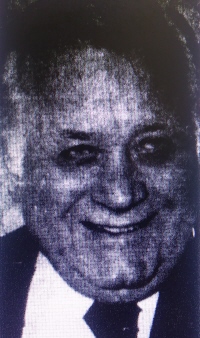
Clarence Vincent "Tubby" Schmalz was a Canadian ice hockey administrator. He served as vice-president of the Western Ontario Athletic Association from 1940 to 1950, and coached and managed the senior ice hockey team in Walkerton, Ontario. He was elected to the Ontario Hockey Association executive (OHA) in 1956, and served as its president from 1969 to 1972. He was the first commissioner of the Ontario Major Junior Hockey League (OMJHL), serving from 1974 to 1978. He became vice-chairman of the Canadian Amateur Hockey Association (CAHA) in 1979, and was elected its chairman in 1981. He was a graduate of St. Jerome's College, and operated the Hartley House hotel in Walkerton. He served on the Walkerton Town Council for 17 years, including three years as reeve from 1979 to 1981.












